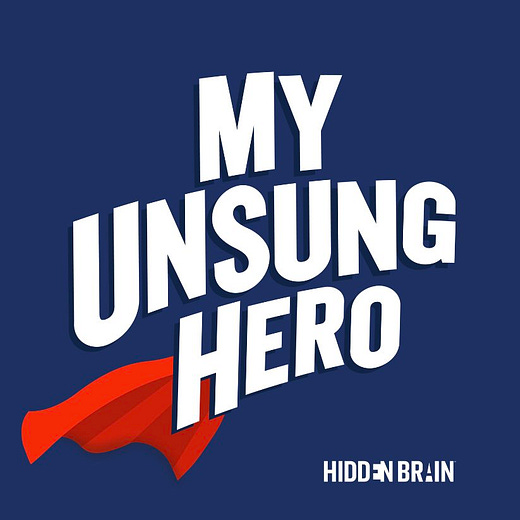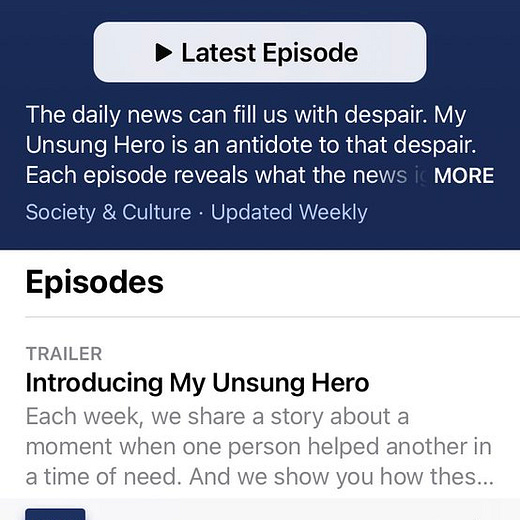Supersize your small talk
Plus, why relationships are harder than they look.
“People are afraid that if they're kind to themselves, they just won't get anything done.” — psychologist Kristin Neff
BRAIN WAVES
Supersize your small talk. The vast majority of conversations don’t end when people want them to end. Researchers say we’re conversationally uncoordinated — that is, we don’t know what the other person wants out of the conversation. Turns out, this is true not just for the length of the conversation but for the topic as well. In a new study, researchers found that while we often engage in small talk with strangers, both parties prefer to have a deeper conversation. In a series of experiments, psychologist Nicholas Epley and his colleagues paired people and asked them to discuss deep or shallow topics. So, “what do you think about the weather?” versus “describe a time you cried in front of another person.” They found that people preferred the deeper conversation and also overestimated how awkward those conversations would be. Deeper conversations also made people feel more connected. So why aren’t we having more meaningful conversations, if that’s what we all prefer? It goes back to being conversationally uncoordinated. We simply don’t know what the other person expects out of a conversation. But Epley notes, “If you share something meaningful and important, you are likely to get something meaningful and important exchanged in return, leading to a considerably better conversation.”
The labor of love. It’s easy to see everyone else’s relationships through rose-colored glasses. But as The School of Life explains, “relationships themselves are an essentially and inescapably difficult project.” The trouble is, we experience our own relationships from the inside but only get to see the outside of everyone else’s. “We see other couples chiefly in social situations where politeness and cheeriness are the rule,” narrator Alain de Botton explains. “We don’t have access to footage from the bedroom, the uncut transcriptions of their rows or their raw nighttime streams of consciousness.” This makes it hard to understand whether our own relationship challenges are normal. If we could see more accurate glimpses of other relationships — through media, group therapy, or just more honest conversations with friends — “we might arrive at a surprising and deeply heartening conclusion,” de Botton explains. “That our own relationship is, in fact, two things above all: very normal and good enough.”
The pressure! The expectations! The anxiety! If there’s one thing that connects professional athletes with the rest of us, it’s the stress that can come from performing in front of others. Why do so many of us crumble under pressure? And what can we do about it? Listen to learn more.
BIG NEWS
In case you missed it, our new podcast, My Unsung Hero, is here! Each week, we share a bite-sized moment of joy via real-life stories of small acts of kindness. Make sure to subscribe on Apple, Spotify, Stitcher, etc. And if you have your own story of an unsung hero, we want to hear about it! Go here to find out how to record and share it with us.
ON THE HIDDEN BRAIN PODCAST
Oct 11: We're harder on ourselves than we are on anyone else. We criticize our shortcomings and beat up on ourselves for trivial mistakes. In this week’s episode, how we can turn down the volume on our inner critic and embrace a bit more self-compassion instead.
Oct 18: You know that feeling of “I knew it all along”? How once something bad happens, it all seems so obvious? This week, why it’s so hard to evaluate the choices we made in the past.
ON THE MY UNSUNG HERO PODCAST
Oct 14: Lesia Day’s mother was suffering from Alzheimer’s. When she got lost on the highway one afternoon, a stranger went out of his way to help.
MIND GAMES
What is a liquid at room temperature in its original state but solidifies when heated?
LAST WEEK’S PUZZLE
You are filling an empty barrel. Which will happen first?
A) 2/3 full
B) 3/4 empty
C) 1/2 full
D) 2/3 empty
The answer: 3/4 empty, as 3/4 empty is 1/4 full.
FROM THE TWITTERATI…
A MOMENT OF JOY
This one’s for the sweater weather crowd.
Have an idea for Hidden Brain? A story you want to share with us? Send an email to ideas@hiddenbrain.org. And if you’d like to support our work, you can do so here. Listen to us on Spotify, Apple or your favorite podcast platform.







